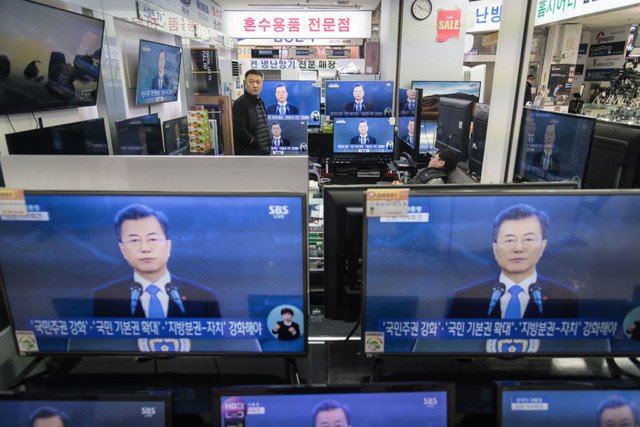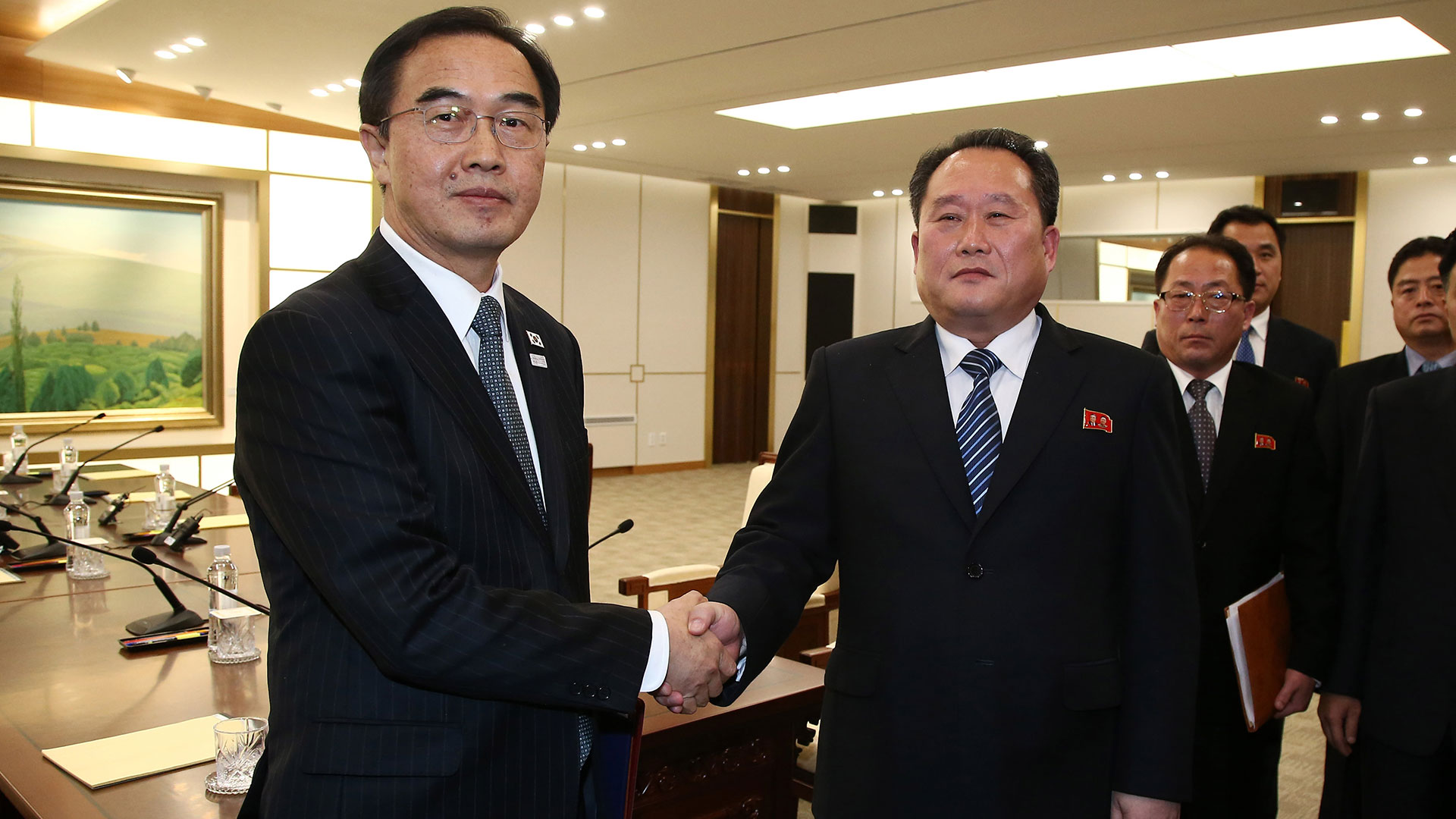U.S. President Donald Trump said he may be open to talks with the Democratic People’s Republic of Korea. Trump spoke on the phone with Republic of Korea President Moon Jae-in.
The ROK was optimistic, saying talks between Pyongyang and Seoul could lead to dialogue with Washington; the U.S. was more cautious, saying the White House is open to discussions “at the right time, under the right circumstances.”
This conversation came after President Moon laid-out his priorities for the year in an annual address to the nation.
CGTN’s Shane Hahm has more.
Pyongyang will send a delegation to the Winter Olympics in South Korea next month, and severed military communications between the two sides have been restored.
ROK President Moon said it’s the beginning of a process that leads to everlasting peace in the region.
“The ultimate goal of our diplomacy and national defense is to prevent a war from recurring on the Peninsula,” Moon said in his annual address. “I do not want the immediate unification of the Korean Peninsula. My goal is to resolve the DPRK nuclear issue, and solidify peace while I am in office.”
The President also downplayed critics, who believe engaging with the DPRK undermines efforts to pressure Pyongyang to give up its nuclear ambitions. He did this by strategically describing the ROK’s alliance with the United States in dealing with the DPRK.
“I think U.S. President Donald Trump deserves big credit for bringing about the inter-Korean talks.”
Moon champions himself as the people’s president, being elected in the wake of protests calling for the resignation of his predecessor. Eight months into his term, his approval ratings continue to hover in the 70 percent range, but more challenges await him this year on the foreign policy front.
“Right now, I think he’s at a critical juncture, where the question will be what will happen on the Korean Peninsula after the Olympics?” according to James Kim, a research fellow at The Asian Institute for Policy Studies. “How will he navigate this very difficult terrain between two great powers: China and the United States? How will he manage relations with Japan as well as North Korea?”
The president also touched on relations with Japan during his speech. He mentioned setting history right, and the principles of truth and justice, in an apparent reference to a controversial settlement over Japan’s sexual enslavement of Korean women during WWII.
But, he also said, historical issues should be separated from diplomatic efforts to safeguard peace on the Korean Peninsula.
 CGTN America
CGTN America A live broadcast showing South Korea’s President Moon Jae-In delivering his New Year’s address is displayed on television screens for sale at an electronics mall in Seoul on January 10, 2018.
Denuclearisation of the Korean peninsula is “the path to peace and our goal”, South Korean President Moon Jae-In said, a day after the North agreed to send its athletes to the Winter Olympics in his country. / AFP PHOTO / Ed JONES
A live broadcast showing South Korea’s President Moon Jae-In delivering his New Year’s address is displayed on television screens for sale at an electronics mall in Seoul on January 10, 2018.
Denuclearisation of the Korean peninsula is “the path to peace and our goal”, South Korean President Moon Jae-In said, a day after the North agreed to send its athletes to the Winter Olympics in his country. / AFP PHOTO / Ed JONES

